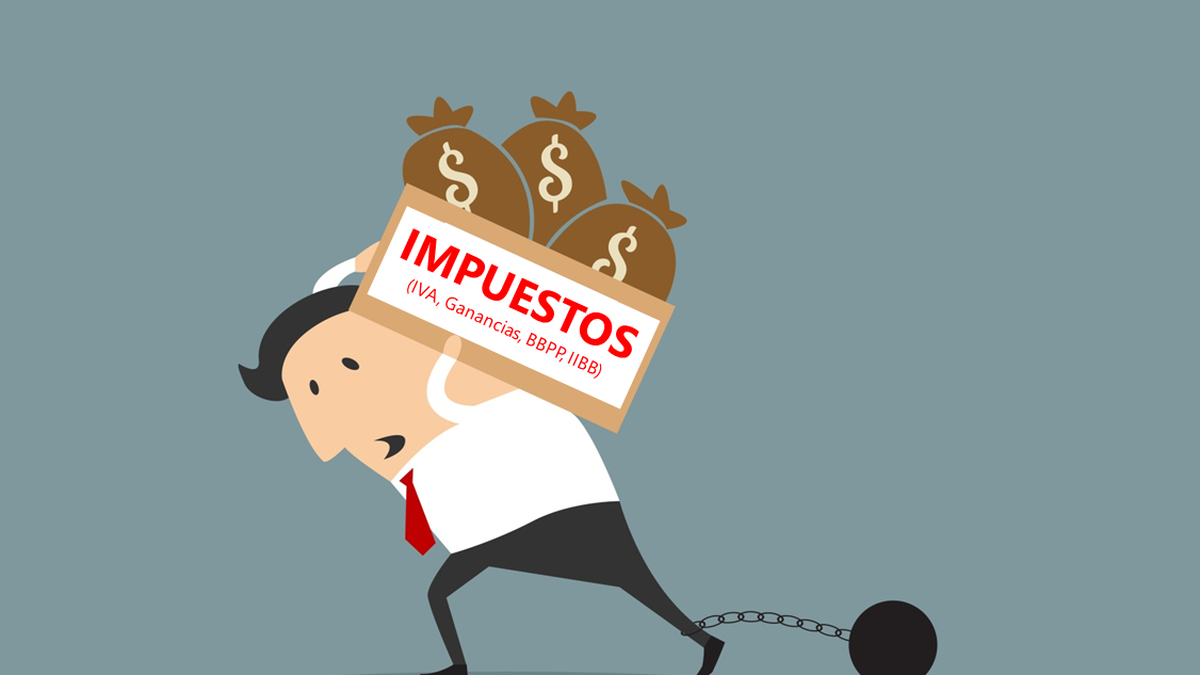The study was elaborated by the Economist Osvaldo Giordano, head of the Ieral, who states that the lack of coordination to face an important tax reform puts limits the growth. Considers that It would be necessary to eliminate taxes for 7.6% of GDP and warns that the tax pressure imposes limits to growth.
“As fast as production was recovered (giving the reason to official optimism that proclaimed a” V “form), it is how the factors that put a roof began to operate”. Giordano points out,
For the professional “There are no new phenomena to explain exhaustion “ Since “as happened many times in the past, the recovery rhythm is let go by deeply enquistas obstacles.” “The roof is put by a cluster of deficits in the design of institutions that condition the development of productive activity ”, The economist of the Foundation based in Córdoba maintains.
In this case, the report states that “Gradualism is not enough to break the tax roof ”, When referring to the way in which Javier Milei faces the promise to reduce taxes to the extent that the fiscal surplus can be consolidated.
“In a quick and conservative evaluation, the taxes that urgently urgent – because they are a clear lock for production – add up to more than 7.6% of GDP ”, Indicates the report.
The article argues that “in order of importance, considering the collection they generate, this Computing includes gross income, check, export rights, stamps and municipal fees on sales ”.
“There are other impositions that need to be reviewed and moderated (for example, the employer contributions) but in a Minina approach the challenge is to eliminate (not simply reduce) these 5 taxes provided by a quarter of the total income that the State counts, ”says the study.
The retentions reduction: lower impact on production
For example, the study indicates that the loss of income for the State generated by the Partial reduction of the withholdings announced a few days ago by the government “is estimated above 0.2% of GDP.”
“If compared to The financial surplus that is around 0.3% of GDP is a very important effort. But seen from the perspective of production, the announced reduction is a minor advance, virtually imperceptible, in the face of the challenge of eliminating all bad taxes, ”says the work.
In that sense, the article indicates that “the paradox of Much fiscal effort for little relief to production naked a first inconsistency. ”
Discount of retentions that appropriate the provinces
“The other point to consider is that The decrease in export rights is compensated, not less than 50%, with increases in the collection of other taxes ”, Add the report.
The same indicates that “only It is a matter of time for a significant proportion of lost public income to recover due to increases in profits, VAT, Gross income, seals and municipal fees ”. “Most of this income is appropriate directly or indirectly (via co -participation) by the provinces“Add the article.
And he maintains that “Not having planned this complexity leads to a second paradox: the loss of income for the nation can lead to the provinces increase current expenses because they are going to have more collection. ”
The head of the Ieral points out that “Resigned to tolerate taxes that damage competitiveness because it is worse to return to the fiscal deficit is not the only one or the best alternative.”
“Much more consistent with the challenges posed by the macroeconomic environment is diagram a coordinated strategy between the three levels of government so that the best taxes (VAT, Profit, Heritage Tax) generate the resources needed to compensate for the losses caused by the elimination of bad taxes, ”he recommended.
The commitment to the IMF
The agreement with the International Monetary Fund (IMF) signed in Aprilwhich will be neutral in income. With a lower amount of taxes it is intended to raise the same. In the Staff Report of the first review, progress is not made much more in details. The need is mentioned to rationalize the VAT tax expenditure, which represents 1.31 of GDP. The other objective would be to delete the check tax and the taxes that make credit more.
The idea in the government would be to transfer to the provinces the responsibility of VAT so that they then compete with each other offering the investment of the most attractive aliquots,
If the government raised the proposal this year, It would have to be treated in Congress during 2026 and would only enter into full validity in 2027. And while the ruling can obtain in October an electoral result, it will have a number of own legislators who will still be far from achieving control of the cameras, so it will be obliged to negotiate an agreement with the provinces.
Source: Ambito




